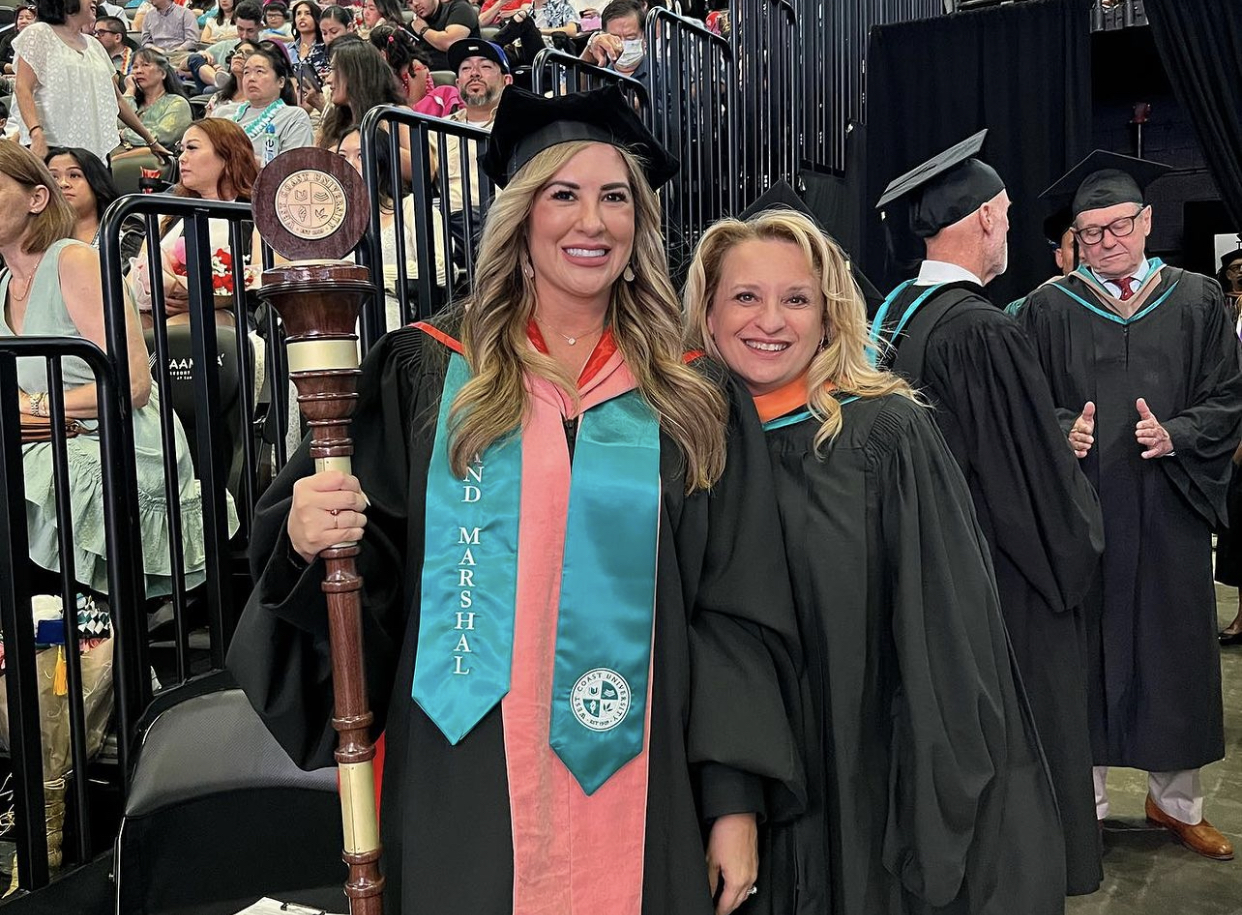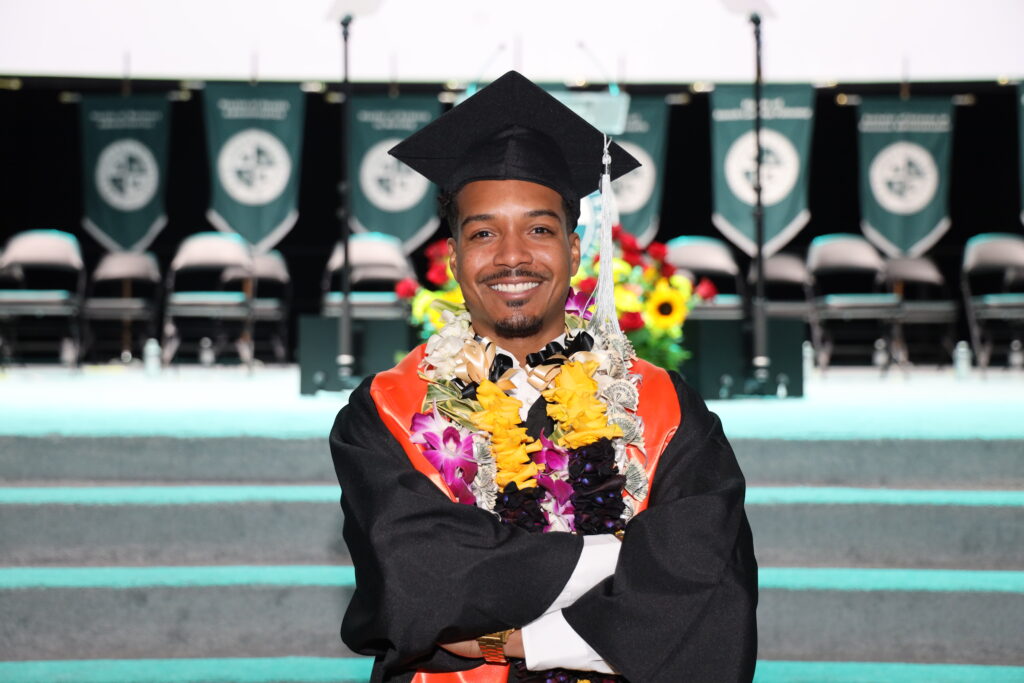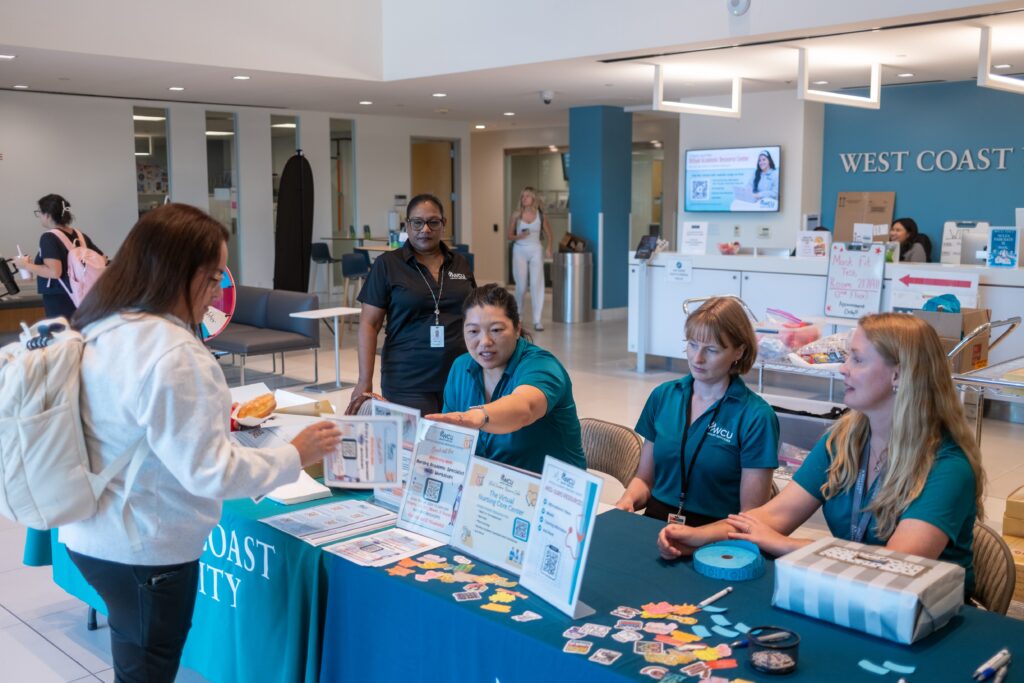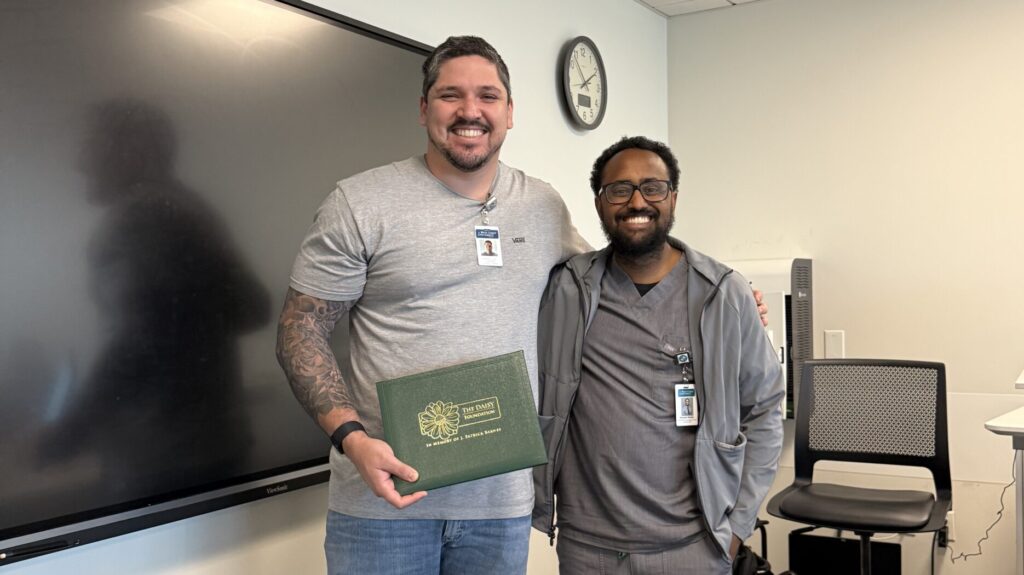Dr. Leticia Esau is the lead public health nursing faculty at West Coast University-Ontario. Beginning her public health journey as a school nurse, she decided to become an educator to share her expertise while emphasizing the importance of advocating for vulnerable populations.
Due to her passion and leadership, Dr. Esau was selected as the inaugural faculty grand marshal for the WCU Summer 2023 California commencement, kicking off a new tradition where a faculty member leads the university platform party onto the stage.
Learn more about Dr. Esau’s story in this Q&A:
WCU: Congratulations on being selected as WCU’s first Grand Marshal. What was that experience like for you?
Dr. Esau: The overall experience was exhilarating and beyond exciting. To be the faculty member leading the platform party, and to be the first person that the graduates and their loved ones see, is going to be an experience that I will never forget. I am so excited for future faculty members who will be selected to experience this honorary role.
WCU: I want to talk a bit about you and your story. You have your master’s in nursing and doctorate in public health. What brought you to where you are today?
Dr. Esau: Both of my parents are immigrants, and my father had a short timeframe being a migrant farm worker. He would tell me some of the horrific stories that he had encountered, and unfortunately, some of the negative experiences that he had with healthcare professionals. As a child I knew that I wanted to work with vulnerable groups, because I wanted to take the path where I could be the voice and advocate for those that are underserved.
I started off as a school nurse. I worked with students that were from migrant families out in the Coachella Valley, and there I was able to advocate and help them navigate the complex healthcare system. Then, I thought, I want more people to know about this field. So, I began looking at some community health instructor positions from a nursing standpoint. Luckily, I was able to secure the job at West Coast University, and I’ve been here for seven years doing what I absolutely love.
WCU: Can you tell me a bit more about the impact public health nurses have on the community?
Dr. Esau: We try to eliminate some of the barriers that will prevent an individual from living their life to its fullest potential. These barriers are not just geared towards health, that’s just one component. It’s also about people being able to afford where they live, addressing poverty, homelessness, and other vulnerabilities that people are faced with. We are in the business of addressing inequities to eliminate health disparities. Essentially, that’s the goal of public health — improving the well-being of others and eliminating health disparities.
WCU: As faculty, how do you involve your students in the community?
Dr. Esau: I like to provide one or two volunteer opportunities for students every term. Students will interact with vulnerable groups who may be timid and may have distrust with the healthcare system. The students are able to work on their relationship-building and communication skills in an attempt to establish trust and rapport. As their instructor they’ll have me there to help guide them with the appropriate communication skills. I think it’s important for us, as theory instructors, to get involved in the community so that we’re able to bring those real-life experiences into the classroom.
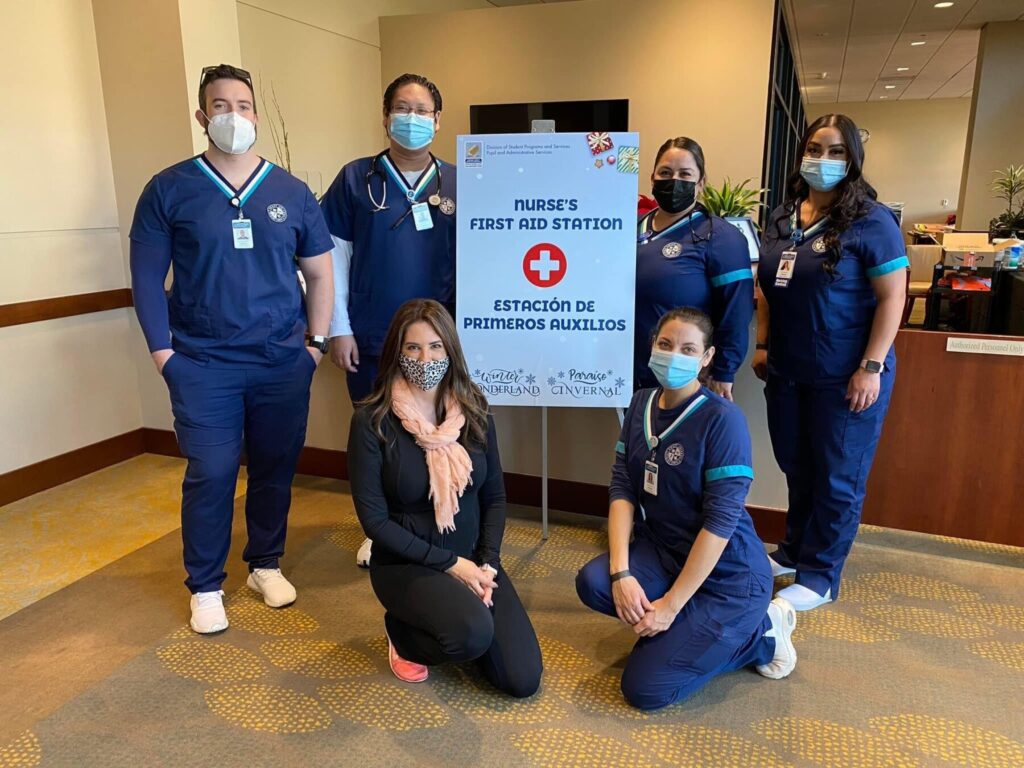
WCU: Can you describe your involvement in public health outside of teaching?
Dr. Esau: I’m involved now in a school-based health center committee which essentially focuses on the Inland Empire. What we really are seeking to do is bring health care services to the K-12 school setting. We know that there’s a lot of barriers for students and families to obtain healthcare, so our goal is to bring school-based health clinics to high schools so that students and families can access health care services.
There’s also another organization that I am involved with called Vision to Learn. They bring mobile units to schools where students are screened for vision and are prescribed glasses free of charge. We targeted Riverside County the last two years, and we were able to prescribe over 8,000 glasses to K-12 students.
WCU: How important is it to have community partnerships as a public health leader?
Dr. Esau: One of the objectives in public health nursing is for students to understand the importance of collaborating with community agencies, and to understand how to obtain some of those resources that we don’t traditionally encounter. We’re always lacking in funding as it pertains to public health, so we need community partnerships, whether it’s the church that’s providing the food bank, an agency that provides the clothing drives, or a school that’s providing free vision screening. We need to identify those resources and form partnerships.
WCU: What advice do you have for the next generation of public health professionals?
Dr. Esau: You have the ability to impact somebody’s life. Honing in on your skills, your empathy, communication skills, being passionate about what you do – that’s all going to translate in the type of care that you’re providing to these groups. And, for my future public health nurses, I need for you to understand that what you’re doing is so important for the community.
WCU provides career guidance and assistance but cannot guarantee employment. The views and opinions expressed are those of the individuals and do not necessarily reflect the beliefs or position of the school or of any instructor or student.
